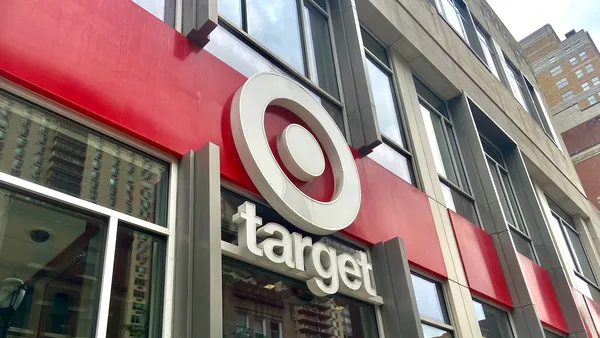Dive Brief:
-
Walmart is mulling further changes to its dress code, including allowing jeans (right now only khakis or black denim is allowed) and shirts of any color (now only blue or white is allowed), according to a proposed employee manual obtained by Bloomberg.
-
The ideas are being tested in a "small number of stores and just started," and the company doesn’t have much to share about the tests yet, a spokesperson told Retail Dive in an email, but confirmed that the details in the Bloomberg report are accurate.
-
A dress code instituted in 2014 requiring collared shirts and khakis was set aside almost immediately after it met with a legal challenge from labor groups that argued it was in essence a uniform, too expensive for many of the low-paid workers and therefore ran afoul of labor laws.
Dive Insight:
Walmart is making a lot of changes. First, by spiffing up its website and now in hopes of attracting more store workers in a tight market, it's apparently looking to loosen things up at stores, according to Bloomberg.
"We are always testing new ideas and concepts in a small number of our stores," according to a statement provided in Walmart’s email to Retail Dive. "Some of these tests are expanded while others are retired. We won’t know next steps on this test until we’ve had a chance to learn what works and what could work better."
A more relaxed dress code would likely be not just more comfortable, but also less expensive for workers. Walmart in January boosted its starting pay and some benefits in order to attract more applicants, positioning the move as a response to the tax overhaul passed late last year that is providing the retailer with a windfall to share, thanks to a significant reduction in the corporate tax rate.
While a more relaxed dress code could indeed help attract more workers and keep current ones around, Walmart may find it must increase wages further, as rivals have mostly surpassed these minimums. Target in October, for example, raised its minimum hourly wage for all team members to $11, along with a commitment to increasing it to $15 by the end of 2020. The company called the move a "significant investment" that will allow it to recruit and retain qualified store associates and elevate the experience for customers.
Target made news in March when began allowing store associates to wear jeans on weekends, a reward for rising same store sales in 2017, which increased 1.3% for that fiscal year.
Costco has enjoyed the warmest reputation when it comes to giving workers above-average pay and benefits, a proposition that has consistently pleased customers, research has found. In 2016, the membership club announced a hike in its minimum starting hourly pay, the first in nine years, boosting those wages $1.50 to $13, well above the federal minimum and approaching the highest minimum wages set by some localities in recent years.
Walmart has long suffered criticism for its hourly pay and employee conditions. Many of these recent initiatives, including a more relaxed dress code, are part of the retailer's push to not just change its image, but change the in-store experience too.













